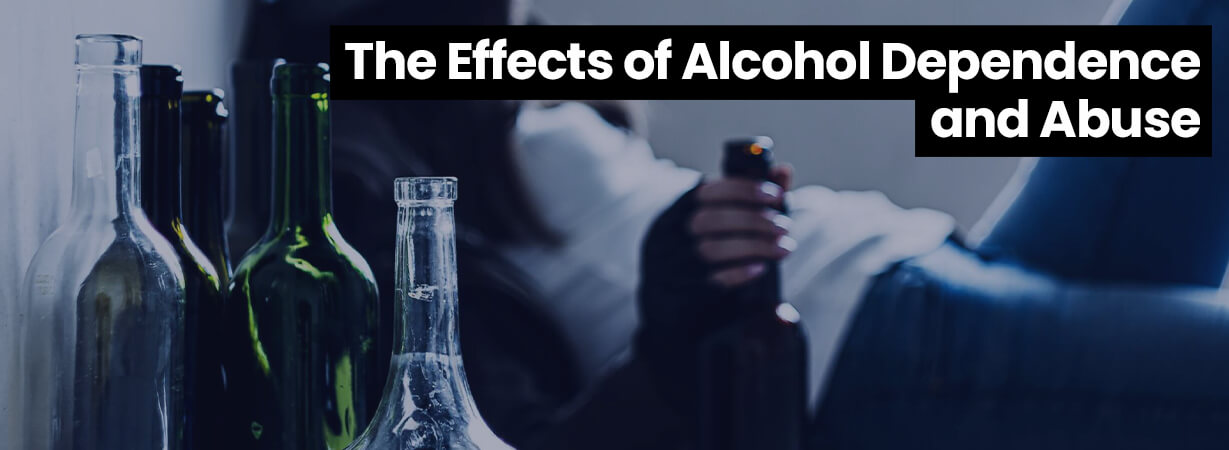Alcohol Dependence
Alcohol Addiction Treatment
Drinking excessive amounts of alcohol can lead to abuse and dependency, commonly referred to as alcoholism. This disorder is characterized by a mental and/or physical addiction to alcohol, where individuals continue compulsive drinking despite harmful effects on their health, relationships, and overall well-being.
it’s estimated that in the United States alone some 4% of the population suffers from alcohol dependence and another 4% abuse alcohol.
While the cause of alcoholism is not currently known, scientists feel there is a strong link to a person’s genetic history.
Those who are addicted have a need, or a strong urge, to consume alcohol. While there are many symptoms and health related costs with alcohol abuse, it’s important to point out that alcohol dependence and alcohol abuse have now been consolidated into one disorder according to DSM-5, named Alcohol Use Disorder.
Previously they were considered separate disorders and the new classification is not without controversy.
How Does DSM-5 Classify Substance Abuse?
When excessive drinking results in problems such as physical or mental addiction, it is considered alcohol abuse.
Individuals who abuse alcohol may not drink every day but might find that once they begin to drink, they cannot stop at an appropriate amount. Consuming alcohol in such high quantities has numerous negative side effects.

Side Effects of Alcohol Abuse
Alcohol Abusers can blackout, meaning they might have memory lapses of their behavior while drinking. They might also experience the following side effects:
In extreme cases of abuse, more severe side effects can include:
Many alcohol abusers begin to experience legal problems, like arrests for driving under the influence, or professional problems because of excessive absences from work due to drinking.
Alcohol dependence frequently creates family and relationship conflicts as some individuals disregard, or in worse cases become violent with, their loved ones while drinking.
Though people displaying these traits are not necessarily dependent, persistent abuse can lead to alcohol dependence.
Symptoms of Alcohol Dependence
There are several key symptoms for those suffering from alcohol dependence.
One of the early signs becomes apparent when a person’s tolerance to alcohol increases, and a greater amount is needed to reach intoxication.
Along with an added tolerance, individuals who are dependent on alcohol find that they begin to drink larger amounts over longer periods of time, often making sure that they’ll have access to alcohol in whatever setting they’re in.
This can lead to a change in previous activities, like work, spending time with family, or recreational pursuits; environments where alcohol isn’t available or the use of it is frowned upon.
Another common indicator is drinking to relieve withdrawal symptoms, instead of allowing the alcohol to simply work its way out of the system.
Finally, those with alcohol dependency continue to drink despite the awareness that their habit is creating difficulties not just at home and with their family, at their jobs and with their employers, but also recurring physical and mental issues arising from their use of alcohol.
Complications From Alcoholism
The mental and physical complications from alcohol dependence are vast, and often devastating. Alcoholism can lead to some of the following complications:
An alcoholic experiencing withdrawal can also develop Delirium Tremens (DTs), which can pose a serious health risk if not monitored and controlled by medical professionals.
Common to those with long-term alcoholism, the symptoms include double vision, a loss of muscle coordination that leads to tremors, the inability to form new memories and hallucinations.
DTs can also create a lack of mental activity, leading to coma and even death.
Treatment for Alcohol Dependence or Alcohol Abuse
Treatment for alcohol dependence focuses on getting individuals to give up alcohol completely.
Alcohol dependence can be a challenging condition to treat. Many individuals may not fully recognize the extent of their drinking problem, and relapse rates can be high.
Studies show the odds for successful treatment are better when a patient has the support of their family, friends, and employer.
The different approaches to treatment of alcohol dependence vary.
Inspire Malibu focuses on Science and Evidence based treatment using non-12-step rehab methods.
Each client receives an individualized, one-on-one daily treatment plan created and guided by our team of addiction specialists.
Our doctors are certified in Addiction Medicine and Psychiatry, which makes them uniquely qualified to treat alcohol dependence and the underlying causes of the alcohol-related issues.
It’s not common for addiction treatment centers to have doctors on staff and we’re fortunate to have one that is double-board certified.
Our approach treats the individual using a variety of methods including:
- Safe and Comfortable Alcohol Detox
- Cognitive Behavioral Therapy
- Relapse Prevention Therapy
- Motivational Enhancement Therapy
When a Dual Diagnosis occurs, psychiatric treatment is necessary to treat depression, bipolar, anxiety, or personality disorders.
We also use non-religious support groups during treatment and for aftercare maintenance. In some cases, treatment is combination of all the various approaches.
If you or someone you know has a problem with alcohol abuse or alcohol dependence, it’s important to seek help.